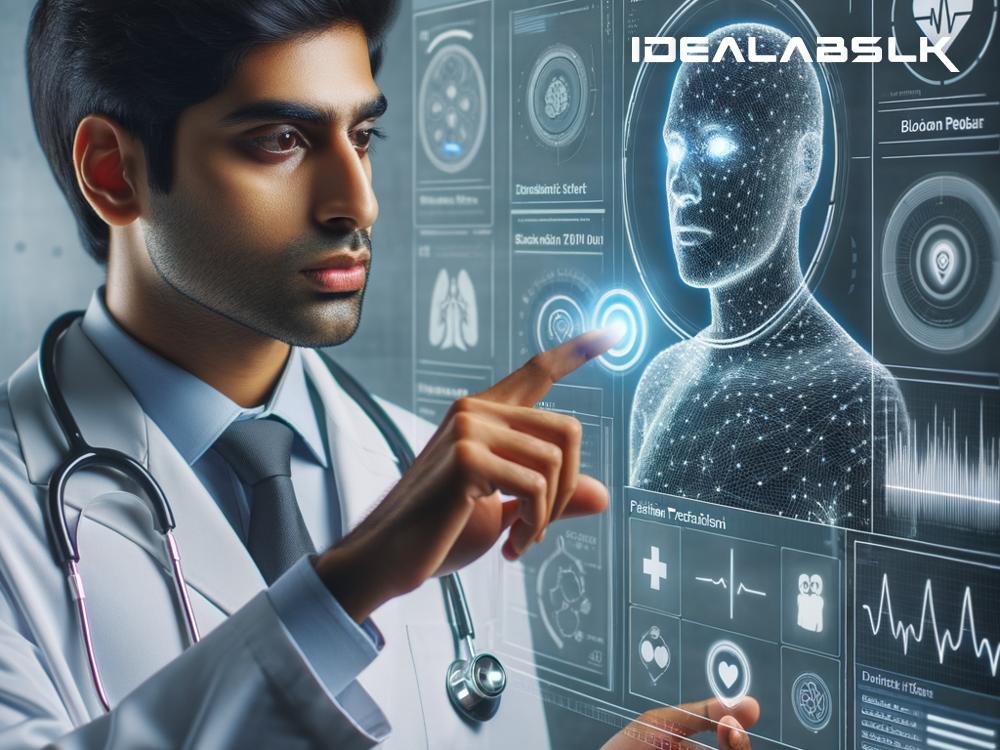Predictive AI in Health Screening: A Glimpse into the Future of Medical Diagnostics
Imagine a future where doctors can predict diseases even before they show any symptoms, offering a chance for preventive measures that could save countless lives. Well, believe it or not, that future is almost here, thanks to the advancements in Predictive AI (Artificial Intelligence) in health screening. Let’s uncover how this groundbreaking technology works in simple terms and explores its benefits and potential in revolutionizing healthcare as we know it.
Understanding Predictive AI
At its core, Predictive AI is like a super-intelligent system that can analyze massive amounts of data and predict future events with astonishing accuracy. In healthcare, this involves looking at everything from patient medical histories, lifestyle facts, genetic information, and even the vast world of medical research to foresee potential health issues.
How Does Predictive AI Work in Health Screening?
-
Data Collection: The first step is all about gathering data. This data can come from various sources, including health records, genetic tests, wearable devices that track physical activity, and even smartphone apps that monitor sleep patterns.
-
Machine Learning Models: The collected data is then fed into sophisticated machine learning models. These models are trained to identify patterns and correlations that are too complex for human brains to perceive. Over time, with more data being fed, these models get smarter and more accurate in their predictions.
-
Risk Assessment: Based on the model's analysis, Predictive AI can assess an individual’s risk of developing certain diseases. For example, it might predict the risk of diabetes based on factors like age, weight, family history, and lifestyle habits.
-
Early Intervention: With these predictions, healthcare providers can recommend preventative measures, lifestyle changes, or closer monitoring for those at higher risk, potentially preventing the disease from developing.
Benefits of Predictive AI in Health Screening
Proactive Healthcare: The most significant advantage of Predictive AI is its ability to shift the healthcare paradigm from reactive to proactive. By identifying health issues before they manifest, patients can take measures to prevent diseases, leading to healthier lives and reduced healthcare costs.
Personalized Medicine: Predictive AI can tailor health screenings and treatment plans to the individual’s unique risk profile, offering a more personalized approach to medicine. This customization can significantly improve treatment outcomes and patient satisfaction.
Early Detection and Treatment: For many diseases, early detection is crucial for successful treatment. Predictive AI enhances the possibility of catching diseases in their nascent stages when they’re most treatable.
Challenges and Ethical Considerations
While the benefits are vast, Predictive AI in health screening does pose challenges, including privacy concerns, data security, and the potential for misinterpretation of AI predictions. Ensuring ethical use and addressing these concerns is critical as we move forward with this technology.
Real-world Applications and Future Potentials
Predictive AI is already making strides in several areas, such as predicting cardiovascular diseases, cancer, and diabetes. Future potentials are vast, ranging from predicting mental health issues to rare genetic disorders, significantly expanding the scope of preventive medicine.
Conclusion
Predictive AI in health screening represents a monumental shift towards a more proactive and personalized healthcare system. By harnessing the power of AI to predict and prevent diseases, we stand on the cusp of a healthcare revolution that promises not only to extend life but to enhance its quality. While challenges remain, the continuous advancements in AI and machine learning, coupled with increasing awareness and regulation, point towards a future where Predictive AI could become an integral part of everyday healthcare, transforming the lives of millions worldwide.
As we continue to explore the potentials of this technology, it’s clear that Predictive AI holds the key to unlocking a new era of healthcare – one where we can anticipate health issues before they arise and take meaningful steps to prevent them, heralding a new dawn of health and wellbeing for all.

